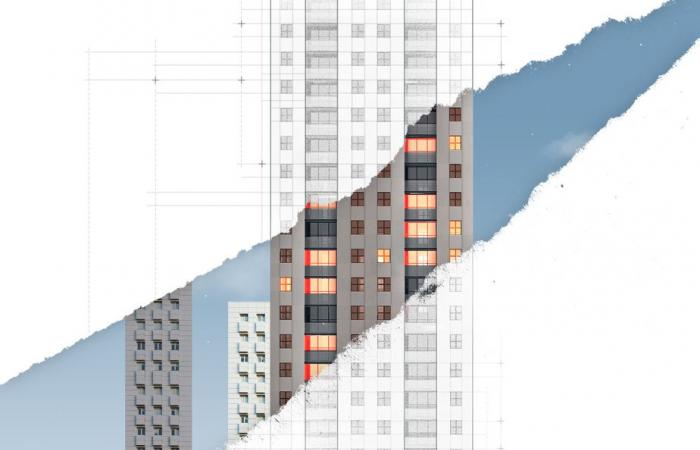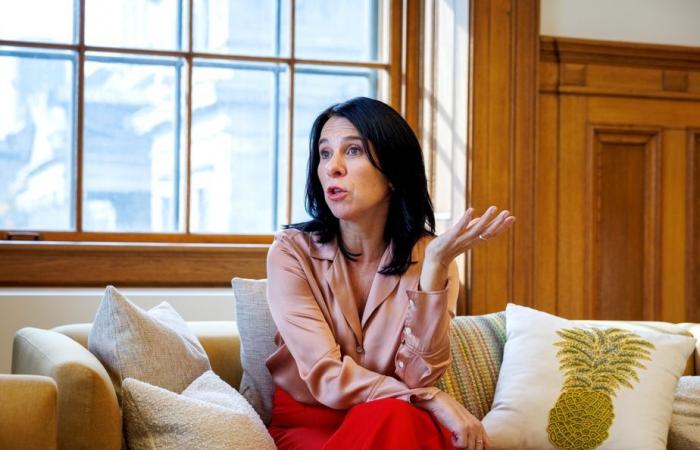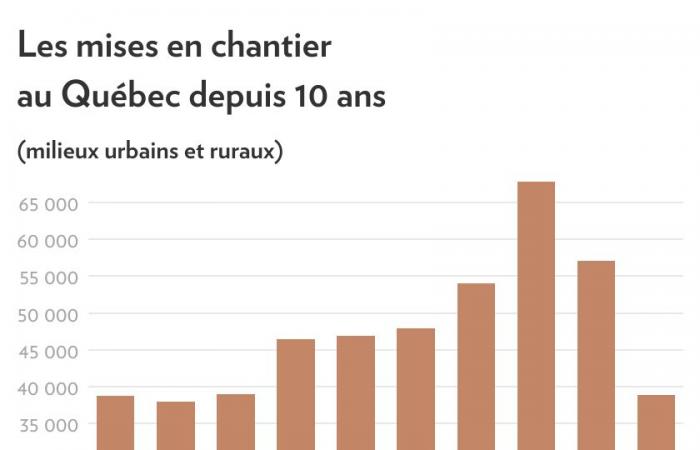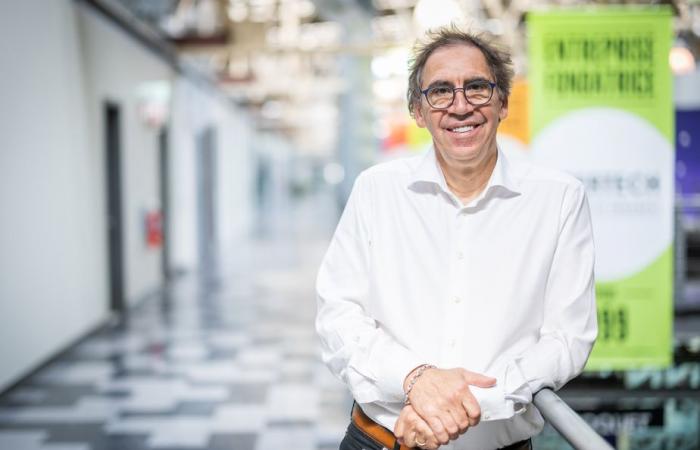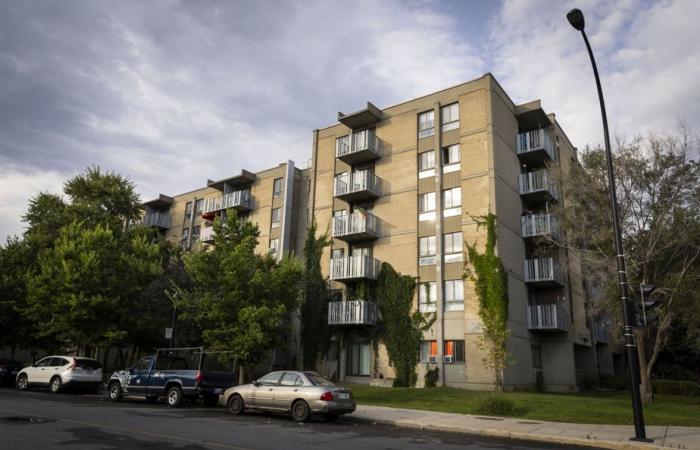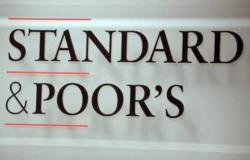We cannot accuse the Financial Times to lean too much to the left. However, in an analysis published at the end of September1architecture critic Edwin Heathcote wrote that we could no longer rely solely on the private sector to solve the housing crisis.
Published at 5:00 a.m.
In his text, Mr Heathcote argued for forms of tenure other than home ownership, adding that the current situation forces us to think about the commodification of housing which has led to the current crisis. From a newspaper that advocates the free market, this is an interesting reflection.
This idea that we must “break” the housing model is also gaining ground in Quebec, where the housing shortage is being felt severely. And in the face of which the federal, provincial and municipal governments too often seem powerless. In an interview she recently gave me, the mayor of Montreal, Valérie Plante, confided that housing was the issue that gave her the most trouble. “It’s an issue that doesn’t just depend on the City,” she told me. It depends on different levels of government, interest rates, construction costs, etc. »
PHOTO ALAIN ROBERGE, LA PRESSE ARCHIVES
Mayor Valérie Plante, in interview with our columnist
At the City, we really try to take all the tools at our disposal, but there is a macro context which is greater than just Valérie Plante’s desire to find solutions.
Valérie Plante, mayor of Montreal
A delay to catch up
Meanwhile, the rental market is under pressure. For 2024, the Canada Mortgage and Housing Corporation (CMHC) predicted an increase in the cost of rent of 8.5% for a four and a half in the Montreal metropolitan area, i.e. an average rent which would increase from $1,096 to $1,190. $ in one year. And it won’t get better.
As for construction starts, they are clearly insufficient. “The condo is currently dead,” confirms Isabelle Melançon, CEO of the Urban Development Institute, which represents the private sector.
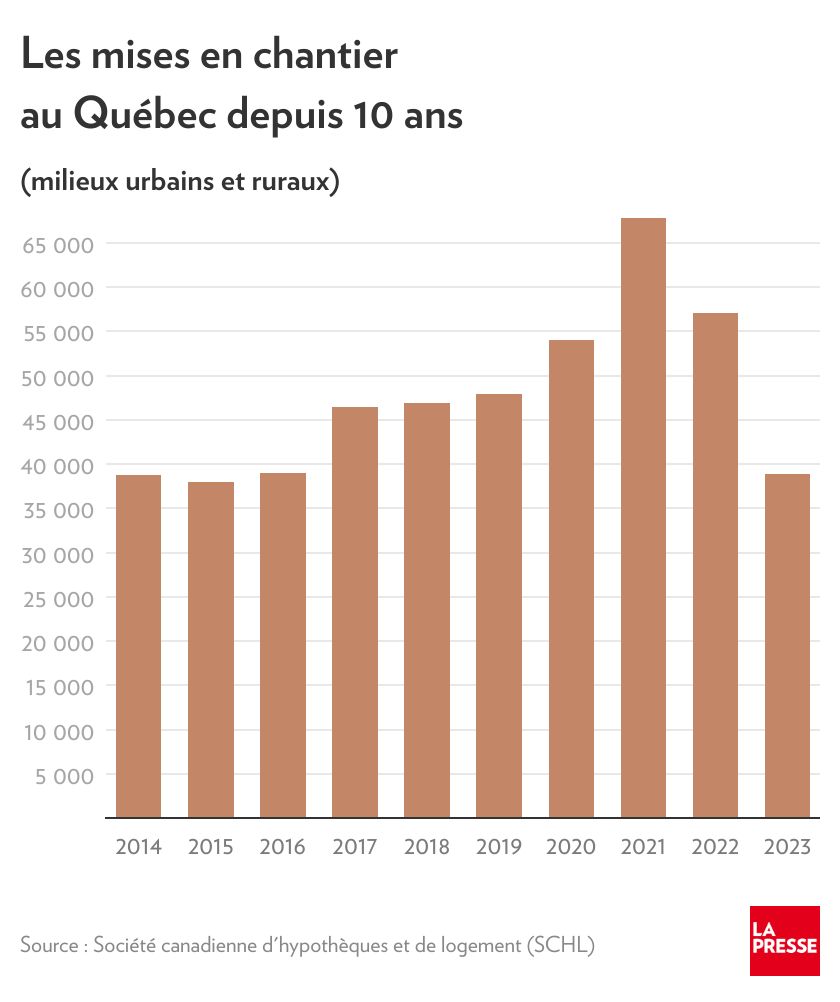
However, to restore market affordability in current conditions, the Canada Mortgage and Housing Corporation (CMHC) estimated last year that at least 620,000 housing units would need to be built in Quebec by 2030.
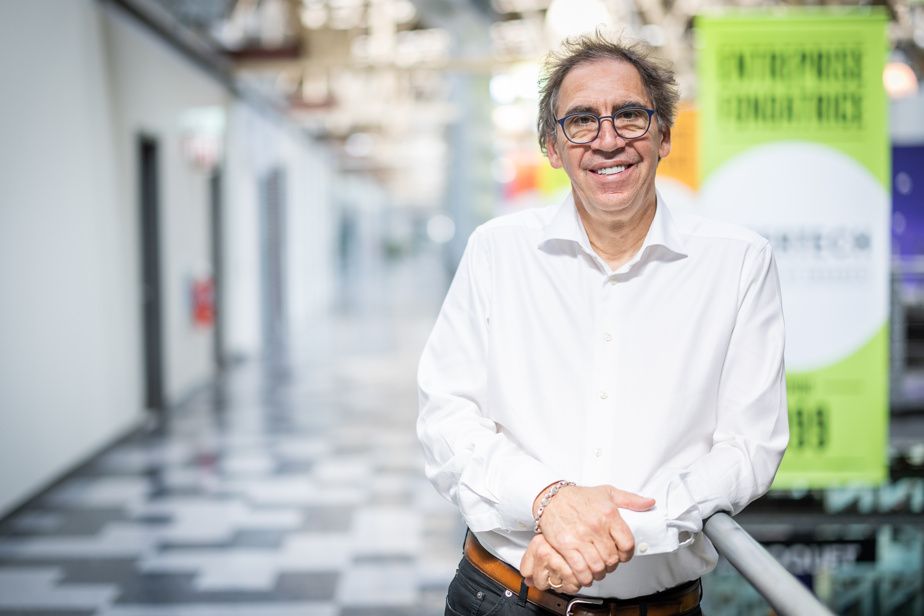
PHOTO DOMINICK GRAVEL, ARCHIVES LA PRESSE
Christian Yaccarini, President and CEO of Angus Development Corporation
“We have to build,” adds Christian Yaccarini, president and CEO of the Angus Development Corporation, which received a grant of nearly $195 million from the Société d’habitation du Québec last summer to build 1,001 affordable housing units, including 350 in Rimouski.
However, even if we worked hard to build housing, we would not succeed. Gathered last May at the invitation of the Fédération des NGOs d’habitation de Montréal (FOHM), the social and community housing community also insisted on the importance of increasing the share of non-market housing to 20%. In Montreal, it is currently around 7%. (Housing is said to be off-market when it is protected from speculation. This is the case, for example, for housing cooperatives, community housing, HLM, social housing, etc.)
To achieve this 20% objective, Valérie Plante announced a few days ago the City of Montreal’s intention to build 160,000 off-market housing units by 2050, in particular by simplifying the sale of land to non-profit organizations3. The objective is ambitious, but the deadlines remain long.
“I am very worried,” says Claude Pinard, CEO of Centraide of Greater Montreal. The geography of poverty is changing. Before, we saw people with their briefcases visiting food banks. There, we see them in shelters. »
“The system is broken,” says Patrick Préville, general director of the Fédération de l’habitation cooperative du Québec. We need to shuffle the cards, because there is an urgent need to act. You have to think not of just one measure, but of several. »
In addition to building massively outside the market, it is therefore necessary, for example, to renovate.
“Preserving the affordable housing stock is a big issue,” recalls Julie Favreau, lawyer and president of Fi3, a consulting firm that specializes in impactful real estate projects.
For every affordable unit built, 15 are lost because they are in poor condition, according to CMHC.
Julie Favreau, president of Fi3, a consulting firm that specializes in impactful real estate projects
“We also have to think about acquisition, that is to say buying buildings that have already been built,” she continues.
A common goal
Since the Housing Summit organized by the mayor of Laval, Stéphane Boyer, and the mayor of Longueuil, Catherine Fournier, in 2022, we feel that the housing sector is boiling, that we are looking for solutions to get back into rhythm of yesteryear, before Brian Mulroney’s Conservative government put an end to the construction of non-market housing.
Currently, money to build non-market housing comes primarily from governments. In Quebec, the two main programs are the Quebec Affordable Housing Program (PHAQ) which replaced Accès-Logis, and the Tax Funds Program, in partnership with the Fonds de solidarité FTQ and the Mouvement Desjardins 2.
Thanks to this new formula, we plan to build or renovate 2,900 social or affordable housing units by 2025.
In addition to traditional mortgage loans offered by financial institutions, the various organizations that specialize in non-profit housing can also knock on the doors of philanthropic foundations or retirement funds.
But that’s not enough.
According to several people interviewed for this file, if we do not show more creativity in financing, we are heading towards a wall.

PHOTO ROBERT SKINNER, LA PRESSE ARCHIVES
France-Élaine Duranceau, Minister responsible for Housing
The Minister responsible for Housing, France-Élaine Duranceau, has never hidden her desire to shake up the ecosystem. She also invited stakeholders in the field on November 12 to discuss it.
“We must innovate and increase the financing levers that will be added to subsidies to accelerate construction,” she said in a written statement. This involves considering continued funding that is as sustainable and predictable as possible. »
1. Read the analysis of Financial Times (in English; subscription required)
2. Read a text from The Press on tax-advantaged funds
3. Read a text from The Press on the announcement of Valérie Plante
A brief glossary of non-market housing
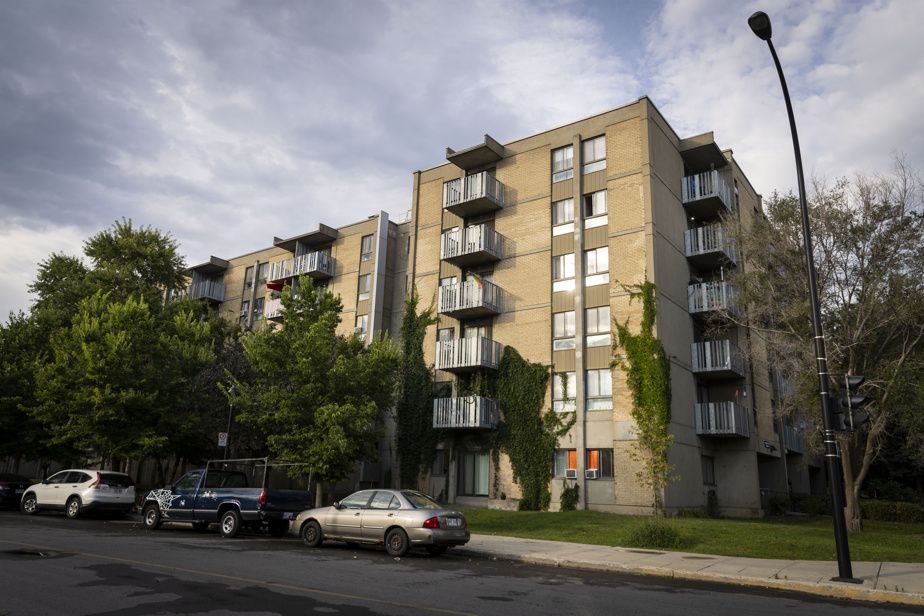
PHOTO SARAH MONGEAU-BIRKETT, LA PRESSE ARCHIVES
HLMs are the best-known expression of public housing in Quebec.
Social housing
Social housing aims firstly to respond in a lasting manner to the right and need for quality housing through buildings owned collectively. Social housing includes all housing belonging to public authorities or the community movement. In social housing, the rents collected are used to pay the costs of development, operation and maintenance of buildings as well as the services offered to tenants, without seeking profit.
Public housing
Public housing is made up of residential buildings owned by the State which also provides financing and management, in the case of Quebec, most often through a municipal housing office. Public housing is a subset of social housing. HLM represent the best-known expression of public housing in Quebec and Canada
Community Housing
Community housing is another subset of social housing, it is distinguished in that it is developed and managed in a spirit of community ownership. The main leaders behind the projects are generally social groups (tenants, women, seniors, disabled people, veterans, etc.), charitable associations (lions, kiwanis, Knights of Columbus, etc.), religious communities or foundations that seek to resolve housing problems in their area. Non-profit organizations and cooperatives are the most common forms of community housing.
Source: Quebec network of housing non-profit organizations

